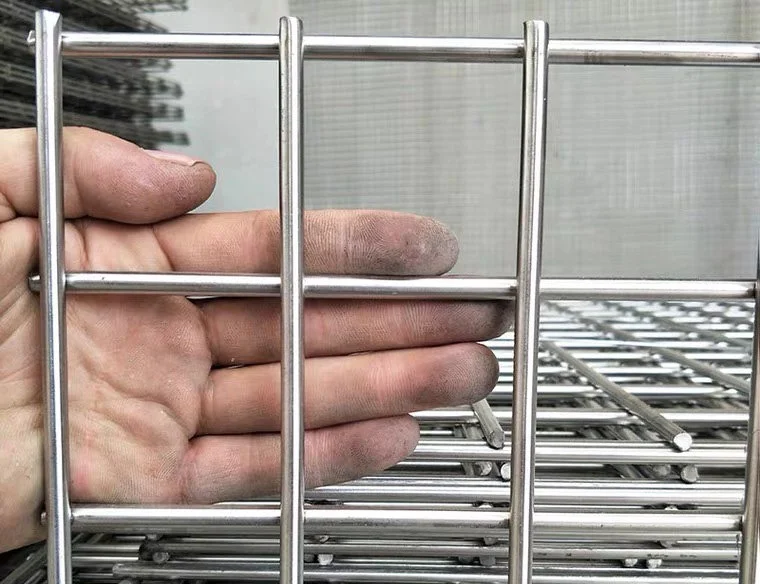When it comes to industrial, architectural, or construction applications, stainless steel wire mesh stands out as one of the most versatile and durable materials available today. From filtration and fencing to reinforcement and design, its adaptability makes it a preferred choice across industries. However, with various mesh types, sizes, and specifications available, selecting the right one for your project can be a challenge.
In this guide, we’ll break down the essential factors you should consider when choosing stainless steel wire mesh to ensure optimal performance, longevity, and value.
1. Understand the Purpose of Your Application
Before diving into specifications, it’s crucial to clearly define what you’ll be using the mesh for. Different applications demand different mesh characteristics.
-
Filtration: For liquid or gas filtration, fine woven wire mesh with small openings is ideal as it efficiently separates particles.
-
Fencing or Enclosures: Medium or coarse mesh with thicker wires offers strength and durability for protection and partitioning.
-
Construction Reinforcement: Mesh with high tensile strength is best suited for concrete support, plastering, and architectural facades.
Knowing the purpose helps narrow down the material grade, weave type, and wire thickness you’ll need.
2. Choose the Right Material Grade
Not all stainless steels are created equal. The performance of your mesh depends on the type of alloy used. Common grades include:
-
SS 304: The most widely used grade, suitable for general-purpose applications. It offers excellent corrosion resistance in normal environments.
-
SS 316: Ideal for marine or chemical environments where exposure to moisture, salt, or acids is high.
-
SS 310 & SS 321: Used in high-temperature applications due to their superior oxidation resistance.
Choosing the right grade ensures your stainless steel wire mesh remains durable and corrosion-resistant under specific environmental conditions.
3. Determine the Mesh Type and Weave Pattern
The structure and weave pattern of wire mesh significantly influence its strength, flexibility, and performance. Some common weave types include:
-
Plain Weave: The most common pattern where each warp wire crosses alternately over and under each weft wire. Ideal for general use.
-
Twill Weave: Offers greater strength and finer filtration capabilities as each wire passes alternately over two and under two wires.
-
Dutch Weave: Provides a tight mesh with high tensile strength, making it suitable for filtration and pressure applications.
If your project requires high precision or filtration efficiency, a woven wire mesh design is typically preferred for its consistent openings and uniform structure.
4. Measure Mesh Count and Wire Diameter
The mesh count refers to the number of openings per linear inch, while the wire diameter determines the mesh’s strength and flexibility. A higher mesh count provides finer filtration, but it also reduces airflow or liquid flow.
For instance, a 10-mesh screen is coarser than a 100-mesh screen. Thicker wires add durability but can limit the mesh’s flexibility. Balancing both parameters ensures that the mesh meets both strength and performance requirements.
5. Consider Wire Mesh Weight and Thickness
The wire mesh weight is another key factor that affects installation and performance. Heavier meshes are generally used for structural or load-bearing applications, while lighter meshes suit filtration, ventilation, or protective screening.
Understanding the mesh weight also helps in estimating transportation and installation costs. Always ensure the mesh’s thickness and weight align with your project’s handling and structural needs.
6. Check for Corrosion and Heat Resistance
In the UAE and other humid or coastal regions, corrosion resistance is vital. Stainless steel is naturally resistant to rust, but the level of protection depends on the grade and surface finish.
If your project is exposed to chemicals, seawater, or high humidity, choose SS 316 or 316L grades. For high-temperature processes, SS 310 or 321 are better options.
A polished or passivated finish further enhances corrosion resistance and gives your mesh a cleaner, more attractive appearance, ideal for architectural or decorative applications.
7. Evaluate Manufacturing Standards and Quality
When selecting stainless steel wire mesh, ensure that the supplier adheres to international manufacturing standards such as ASTM, ISO, or DIN. These certifications guarantee consistent wire thickness, accurate mesh openings, and superior tensile strength.
Trusted manufacturers also conduct quality tests to verify corrosion resistance, mechanical stability, and load-bearing capacity. Always request product data sheets and quality certificates before purchasing.
8. Balance Cost with Performance
While it might be tempting to opt for the most affordable option, cost should never compromise quality. Investing in high-grade stainless steel ensures longer lifespan, minimal maintenance, and better resistance to wear and tear.
Analyze your project’s environment, performance demands, and longevity expectations. A slightly higher upfront cost for superior stainless steel wire mesh often saves money in the long run by reducing repair and replacement expenses.
9. Work with a Reliable Supplier
Partnering with an experienced and trustworthy supplier can make a huge difference. A reliable manufacturer will provide detailed specifications, technical guidance, and customization options based on your project needs.
Look for suppliers who offer various mesh grades, custom sizes, and finishing options. This ensures you get the exact product that fits your design, safety, and durability requirements.
Conclusion
Selecting the right stainless steel wire mesh for your project involves balancing multiple factors, including mesh type, weave pattern, material grade, and wire mesh weight. Whether you’re working on a construction project, an industrial filtration system, or an architectural feature, understanding these specifications helps you make a smarter and more efficient choice.
By choosing high-quality woven wire mesh from a trusted manufacturer, you ensure long-lasting performance, superior protection, and exceptional value for your investment. In the end, the right selection not only enhances your project’s efficiency but also guarantees durability and reliability for years to come.
For More Articles https://globbook.com/
And Through profile link https://globbook.com/Gulshansww






